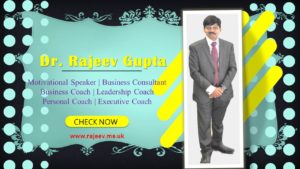Given my participation with the field of executive coaching, I receive several calls from professionals who are seriously exploring coaching as a career and therefore looking at a coach certification program. Quite often I end up dissuading them from their decision to quit their corporate jobs to become a coach.
It may sound strange that as the co-founder of India’s resulting executive coaching institution I should be saying this, but, it is true- the process of becoming a coach-and-four might appear extremely romantic and glamorous. The whole idea of helping someone and impacting their development feels quite heady. However, beneath all these romantic ideas lie several fallacies, over estimations and under estimations.
So, if you are considering investing in an expensive certification program to become a Coach and hope to build a remunerative professional practice around it, here are a few things you might like to know, especially in the India context.
You don’t become a coach simply because you have been certified. You earn the right to become a coach-and-four because you have  proven professional credentials, because you have been there and said and done fairly successfully and for a reasonable period of time. If you are a 30 year old L& D Manager, it is natural that maybe you excited about coaching. It is a certainty that you will be able to master all the coaching skills and processes and be able to have a good conversation. But the bitter truth is that no one will hire you- certainly not for executive coaching.
proven professional credentials, because you have been there and said and done fairly successfully and for a reasonable period of time. If you are a 30 year old L& D Manager, it is natural that maybe you excited about coaching. It is a certainty that you will be able to master all the coaching skills and processes and be able to have a good conversation. But the bitter truth is that no one will hire you- certainly not for executive coaching.
Here is the hard reality- there are a large number of young professionals who have spent day and money to get certified but are not getting to do even an hour of paid coaching run and are naturally feeling frustrated. On the other hand, when someone with deep professional credentials procures a coach-and-four certification and approaches the profession for the right reasons, she or he stands a very good chance of succeeding.
Aspiring to be a full-time coach-and-four may not be wise
It appears that many in the West are full time coach-and-fours. In other words, their day chore is coaching, very much like a therapist’s day job is therapy. I consider many in India attempting to set up a professional practice wholly out of coaching. I am not sure that this work for two reasons.
Firstly, it does not seem realistic for most coach-and-fours to hope to be able to win and execute enough executive coaching assignments in a year to fulfill all their economic wants( except of course for iconic coaches who are in demand and can charge a handsome fee ).
Secondly, it may not also be a great idea for someone to do only coaching work. A coach is in demand only when his or her contextual knowledge is current. In other words coaches need to have a current and contemporary understanding of business issues and challenges, of organisational realities, of leadership concerns and so on. Unless they do other work with organisations like consulting, or training or sitting on Committees, they may not be able to remain current in terms of this contextual knowledge.
All things considered, it makes sense for a coach-and-four to do other things too.
Building a coaching practice ground up takes time.
It is not easy for someone to quit a corporate task, get certified as coach-and-four and then put up a thriving coaching practice immediately. Having been in a corporate chore, these someones may not have access to the coaching marketplace. They may also fighting shy of promoting themselves. So, it is important to be realistic about this dimension. On the other hand, if anyone already has a develop or consulting practice and an existing client base, it is far easier to add coaching to their array of offerings. Similarly, if someone is well networked or has assured demand from his or her last employer or current employer( once he or she retires) things can become easier.
A non-commercial approach helps
When I look back at a large number of coaches who have been effective in the performance of their duties especially in the Indian context, one common feature has been their ability to opinion this as a noble profession rather than as a lucrative career option. As a outcome, these coaches do not watch the clock and give their day freely. They don’t charge by the hour. They are happy to do whatever it takes to help their coachees succeed. They often operate below the radar and are happy with private victory. On the other hand I worry about commercially minded coaches who take on too many assignments, push themselves to complete these assignments fast even when their coachees are not ready, or flash too many testimonials and claim too much credit for things that their coachees actually did.
ibf ibf uk International Business Federation International Business Federation uk
Dr Rajeev gupta rajeev gupta dr rajeev dr gupta dr rajeev gupta uk